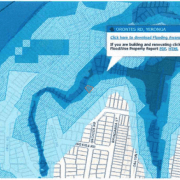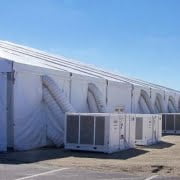One of the key things I like to see when buying a retail shop is a long lease. Not only does a long lease offer you security over future rental payments it wins the banks confidence in the asset as it presents with a higher WALE (Weighted Average Lease Expiry). In Engines of Wealth we discuss the WALE of a building as a measure of the lease term left to run.
Most retail shop owners know that when trying to sell a retail property the lease term is paramount and a premium price will be attained for premises were the tenant is early in to a 5, 7 or 10 year lease. In light of this most property owners will approach a tenant and encourage them to renew their lease or exercise an available option before listing the property for sale. When I see shops on the market for sale with short lease terms I think “danger Will Robinson!” This either means the seller is not diligent or the tenant does not intend to renew their lease for a longer term.
Be warry of short lease situations and thoroughly investigate the reasons why the tenant has not renewed their lease. One of the key steps in selecting a property detailed in Engines of Wealth is talking to the tenant. Of course you should ask the question “Will you be renewing your lease?” if the answer is “No I’m not making any money” then move on and look for an alternate property.
There are a few options you can try with the tenant to encourage them to exercise an option or sign a new lease, but keep in mind the owner may have already taken some of these actions. As a starting point I offer to waive the annual CPI or Market Adjustment increase and freeze the rent at its current level for the next year. In one case I offered to freeze the rent for the full 3 year term of the option as I liked the location and tenant and felt the stability of a 3 year lease would help me with the bank approvals. On another occasion I offered the tenant one month’s free rent if they exercised their option early and extended it by 5 years instead of the original 3 years.
If a tenant refuses to exercise their option or enter into a new lease after your approaches, then that sends a danger signal, I would heed the warning and look elsewhere. The resistance may be an indication of other underlying problems such as low passing foot traffic, poor exposure or a quite area lacking vibrancy – all indicators to move on and find another shop.
If you’re successful in getting the tenant to agree to extend their lease, you need to lock that agreement in before settlement so they are committed and can’t change their mind when you take possession of the shop. Luckily there is an agreement your lawyer can put in place prior to you owning the building, an Agreement to Lease. This can be signed before you actually own the property and it takes effect upon you becoming the registered owner of the building. Ideally I get these signed while in my due diligence period and unless signed, I would not move the contract of sale to unconditional.
If the purchase falls through then the agreement is void and expires. If your purchase settles and you become the owner of the premise, the agreement takes effect and the lease is legally binding on the tenant. Using an Agreement to Lease gives you the buyer the peace of mind that you have a tenant committed for a longer 3 or 5 year term. The major benefit however is that the bank will view the tenant’s commitment more favourably as the longer lease improves the WALE of the building and hence your chance of securing loan approvals.








